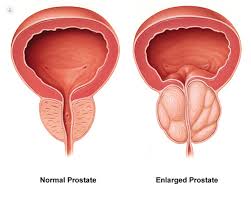Detecting prostate cancer early can make a significant difference in managing the condition. A urologist plays a key role in guiding patients through the process. From identifying potential symptoms to offering treatment options, they help patients take the right steps at the right time. This article explains key aspects of early detection and the role of urologists in addressing prostate cancer.
What Are the Most Common Early Signs of Prostate Cancer?
Prostate cancer in its early stages often presents with subtle symptoms. Recognizing these signs early is a pivotal part of seeking timely medical attention. Making regular health check-ups part of a routine can help with early detection before symptoms become more noticeable.
Some common early signs include:
- Frequent urination: An increased urge to urinate, especially during the night, can signal prostate issues.
- Weak urine flow: Difficulty starting or maintaining a steady flow of urine may indicate an abnormality.
- Blood in urine or semen: The appearance of blood can suggest underlying conditions needing medical evaluation.
- Pelvic discomfort: Persistent pain in the lower back or pelvic area could point to prostate concerns.
Understanding these signs allows individuals to take action and schedule an appointment with a urologist. Early conversations with a medical professional may help identify if further testing is needed.
What Role Do Urologists Play in Prostate Cancer Detection?
A urologist specializes in diagnosing and managing conditions related to the urinary system and male reproductive organs. Their expertise helps guide patients toward early detection practices and effective evaluation techniques.
During evaluations, a urologist takes a comprehensive approach to assess prostate health. They may perform a digital rectal exam (DRE) and recommend a prostate-specific antigen (PSA) test to measure protein levels in the blood. These tools provide valuable insights that help identify potential abnormalities needing further investigation.
Regular visits to a urologist allow for better monitoring of prostate health over time. Urologists also offer guidance on minimizing risk factors, including addressing lifestyle changes and recommending preventive screenings tailored to individual needs. Early examinations can be one step in identifying conditions when they are easiest to manage.
What Treatment Options Do Urologists Offer for Early-Stage Cancer?
Once detected, early-stage prostate cancer can be managed with a range of options. A urologist works with patients to determine a plan that aligns with their condition, overall health, and personal priorities.
Here are some common treatment approaches:
- Active surveillance: For slow-growing prostate cancer, a urologist might recommend monitoring instead of immediate intervention.
- Surgery: A urologist could discuss procedures like prostatectomy, which involves removing the prostate gland.
- Radiation therapy: This option may include techniques such as external beam radiation to target cancer cells.
- Hormone therapy: Used to limit or block testosterone production, hormone therapy slows the spread of cancer.
- Lifestyle adjustments: Urologists may incorporate advice on diet, exercise, and other lifestyle factors to support treatment effectiveness.
Each option comes with its own aspects, and a urologist provides detailed explanations to help patients make informed choices. Collaborative decision-making helps the treatment align with the individual’s preferences while addressing the condition effectively.
Consult a Urologist
Addressing prostate health starts with awareness, regular check-ups, and timely action. If you’ve noticed changes in urinary habits or other possible signs of prostate cancer, schedule a visit with a urologist. Their knowledge and personalized care make a difference in evaluating and managing prostate health.
Take control of your health and talk to a urologist today to discuss any concerns. Early detection and proactive care create the best path forward for maintaining health and well-being.

